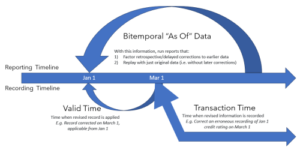
Written by Anjulie Patel, VP of Partnerships at Nucleus365
With International Women’s Day looming it’s time to analyse our sector’s gender dynamics, where we’re underperforming and where we can do better.
The fintech industry has a gender problem. In 2021, Deloitte research showed that only 30% of the UK’s fintech workforce was female, and only 17% held senior positions. Examining the FinTech 50 counts 118 men, and just six women, or 5%, in CEO or founder positions. With that women-led startups received just 2.3% of venture capital funding in 2020.
When looking at the payments sector more closely, Funds Europe in October 2022 reported on a detailed study of 100 professional females within financial industries, 50% had experienced barriers to progression linked to life events that often impact women more than men. This leads to higher dropout rates and career changes away from our industry as well as less initial career interest.
With International Women’s day looming it’s time to analyse our sector’s gender dynamics, where we’re underperforming and where we can do better.
Celebrate the female journey
Throughout our careers, women go through a variety of real-life challenges not afforded to men. From gender bias and stereotypes through to pregnancy, childbirth and menopause, women experience unique life challenges in and outside of the workplace. While 34% of women in financial services experience regular gender discrimination, 50% of women experience progression barriers at work linked to life events. There is no reason these factors should become taboo, be feared, or damage our job satisfaction, performance, workplace well-being or career aspirations.
The initial and perhaps most constructive way of tackling the ‘silence’ around these issues is to bring them to the fore in a way that celebrates those experiences in a way that helps women find relatability and helps male counterparts understand.
Creating a platform
To do so, women must be afforded an equal share of voice in public speaking opportunities. From podcasts, interviews and conference/ speaking events to written content and thought leadership, the avenues to elevate productive gender-based conversations are endless. Companies, event organisers and initiatives must recognise that an equal share of voice has a direct connection to workplace equality and the changing of ingrained and misinformed stereotypes.
From my experience, the women I have worked with have always been transparent about their challenges as a female in the workplace. Our journeys must be celebrated, promoted and placed on equal standing with our male colleagues to spark tangible change for current and future generations.
Increased accessibility for increased equality
What’s stopping women from entering tech, technology or finance roles? Research demonstrates 81% of female students said they either wouldn’t join the financial services sector or didn’t know enough about it to consider it as a career choice. Herein lies the problem. If women of all ages are not educated on the possibilities of a career in payments, finance or fintech, enrolment rates and the long line of consequential gender imbalances will only continue. To counter this dynamic our sector needs to significantly ramp up the volume and quality of accessible initiatives for women.
Accessibility initiatives need to start as young as secondary school; access to women-centric events, curriculum adjustments, and the amplification of female fintech leaders can help in this regard but initiatives should be available to women of all ages. Women already working within our sectors should be provided the opportunity to discuss their experiences in internal and external arenas.
Sector-wide, fintech is growing; consistent rollout of innovative new services and products ensures excitement and ambition are commonplace. Men do not possess any additional skills than women when it comes to entering and driving our sector forward, we must understand that a diverse workplace with equal opportunity can think creatively, collaborate more efficiently, and champion unity. It’s what we’ve done at Nucleus365, over half of our current workforce are females and we’re better for it.
Moving forward
To drive gender equality discussions need to be brought to the fore of relative speaking opportunities and resources. Women have an appetite to explore careers in finance so we must make this as easy as possible. Female-focused initiatives must ramp up and media in all forms must begin to portray the female outlook and workplace experience with considerably more value and attention.
- SEO Powered Content & PR Distribution. Get Amplified Today.
- Platoblockchain. Web3 Metaverse Intelligence. Knowledge Amplified. Access Here.
- Source: https://www.finextra.com/blogposting/23846/why-the-fintech-industry-must-prioritise-gender-inclusivity-this-international-womens-day?utm_medium=rssfinextra&utm_source=finextrablogs
- :is
- $UP
- 100
- 2020
- 2021
- 2022
- a
- About
- about IT
- access
- accessibility
- accessible
- Additional
- afforded
- Ages
- All
- all ages
- already
- always
- ambition
- analyse
- and
- appetite
- ARE
- around
- AS
- At
- attention
- available
- barriers
- BE
- become
- begin
- Better
- bias
- bring
- brought
- by
- CAN
- capital
- Career
- careers
- celebrated
- celebrates
- ceo
- challenges
- champion
- change
- Changes
- changing
- choice
- closely
- collaborate
- colleagues
- Companies
- connection
- Consider
- consistent
- content
- continue
- conversations
- Counter
- Current
- Curriculum
- day
- deloitte
- demonstrates
- detailed
- direct
- discuss
- discussions
- diverse
- drive
- driving
- dynamic
- dynamics
- efficiently
- either
- ELEVATE
- Endless
- enough
- ensures
- equality
- Event
- events
- Examining
- Excitement
- experience
- experienced
- Experiences
- explore
- external
- factors
- female
- female-focused
- females
- finance
- financial
- financial industries
- financial services
- Find
- Finextra
- fintech
- For
- forms
- Forward
- founder
- from
- funding
- future
- Gender
- generations
- Go
- Growing
- Half
- Have
- Held
- help
- helps
- higher
- HTML
- HTTPS
- i
- Impact
- in
- Inclusivity
- increased
- industries
- industry
- initial
- initiatives
- innovative
- interest
- internal
- International
- Interviews
- issues
- IT
- Job
- join
- Journeys
- Know
- leaders
- Leadership
- Leads
- lies
- Life
- Line
- linked
- Long
- looking
- looming
- make
- Media
- Men
- more
- most
- Need
- needs
- New
- october
- of
- on
- opportunities
- Opportunity
- Outlook
- outside
- partnerships
- payments
- performance
- perhaps
- plato
- Plato Data Intelligence
- PlatoData
- Podcasts
- positions
- possibilities
- possible
- Pregnancy
- prioritise
- Problem
- productive
- Products
- professional
- progression
- Promoted
- provided
- public
- quality
- Ramp
- Rates
- reason
- received
- recognise
- regular
- Reported
- research
- Resources
- roles
- s
- Said
- satisfaction
- School
- secondary
- sector
- Sectors
- senior
- Services
- Share
- should
- significantly
- SIX
- skills
- So
- Spark
- speaking
- start
- Startups
- stopping
- Students
- Study
- tech
- Technology
- that
- The
- their
- Them
- These
- thought
- thought leadership
- Through
- time
- to
- transparent
- understand
- unique
- unity
- value
- variety
- venture
- venture capital
- Venture Capital Funding
- Voice
- volume
- Way..
- WELL
- What
- will
- with
- within
- Women
- Work
- worked
- Workforce
- working
- Workplace
- written
- young
- zephyrnet













